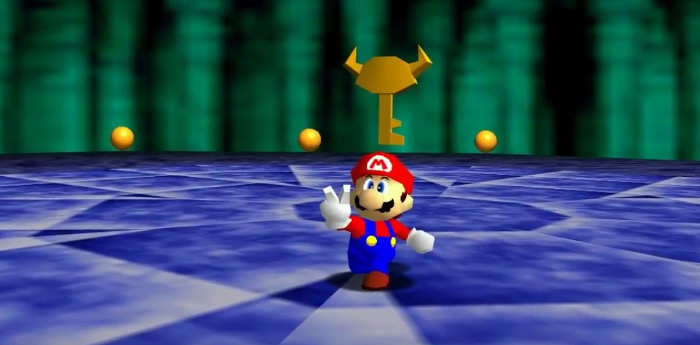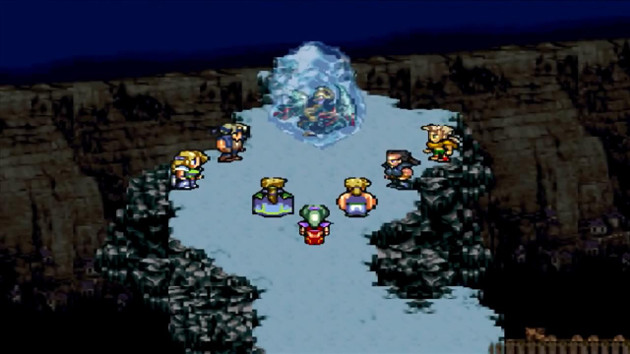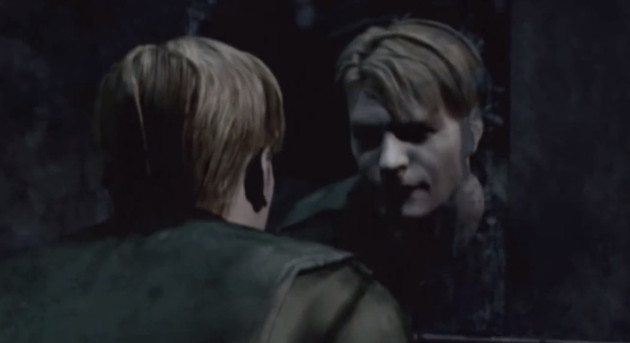Why Acknowledging a Game’s Flaws Can Be so Frightening

The Last of Us is overly linear. Super Mario Bros. 3 has loose controls. Shadow of the Colossus has major frame rate issues, and Half-Life 2 has crappy teammate AI. Oh, and Chrono Trigger is riddled with plot holes.
All of these games are masterpieces, and a few minor flaws aren’t enough to change that. In fact, these issues might not impact your enjoyment of the game at all — I actually really dig SMB3‘s floaty controls.
But there’s a vocal section of the gaming community that readies their torches and pitchforks the moment anyone dares suggest their favorite game is less than perfect.
Most of the time, I see this sort of behavior as ludicrous. Everyone and everything on earth is flawed in some way (with the possible exception of Mother 3). I genuinely believe that when you refuse to acknowledge a game’s flaws, you’re selling it short.
But every now and then, I want to jump in and join those screaming mobs.
The first time I played Final Fantasy VI, I named Terra after myself. This was mostly because I’m a narcissist, but it wound up having a major impact on the way I experienced the game. As I played, I saw bits of Terra in myself, and projected pieces of me onto her. In my head, the two of us are utterly intertwined. To this day, when someone says something about Terra, I can’t help but feel like they’re actually talking about me.
I played Silent Hill 2 shortly after dropping out of college. I was overwhelmed by guilt, and felt like a failure in every conceivable way. James’ story wasn’t exactly inspiring, but it was intensely relatable, and it forced me to take a long, hard look at what I was doing with my life. Pyramid Head is a physical manifestation of James’ desire to be punished, but to me, he also represents my own demons.
I could tell you stories about the first time I listened to Operation Ivy’s Energy, or how I felt when I read The Brothers Karamazov, but most of those pieces of entertainment wouldn’t have the same significance for me. Games involve the person experiencing them in ways that no other medium can, allowing you to become entangled with their narrative in a deeply personal way.
When I watch a Batman movie or read a Batman comic, I don’t have any impact on the things he does. When I play Arkham Asylum, however, Batman’s successes and failures are my own. When the Dark Knight beats a roided-up Bane, I don’t think “Wow, Bats is a badass,” I think that I’m a badass.
I’ll never see Braid as pretentious — it’s what helped me come to terms with the end of an eight-year relationship. Games allow you to work through your issues in a tangible way, and allow you to feel strong even when you’re completely powerless. When your life is collapsing all around you, a game can be a happy-ending simulator. The games we love most become a part of us, which means criticism of those games can feel like a personal attack.
There’s no real benefit to ignoring a game’s flaws; they’re there whether you acknowledge them or not. Plugging your ears and yelling “la la la” doesn’t fix Super Mario 64‘s buggy camera, and it doesn’t make Resident Evil‘s voice acting any less terrible. Critically examining your favorite game can help you to appreciate it in new ways, and can give you a better understanding of how games have improved as a medium.

But none of that makes it any easier to watch as a beloved game is torn apart. Even if I don’t agree with someone’s criticisms, it can be painful to see someone casually dismiss something I love. When a person I respected told me that Final Fantasy VI has one-dimensional characters, I had to fight back tears. When I see people say Mother 3 is overrated, I kind of want to punch them in the face.
Putting your favorite games under the microscope can also make you question yourself in scary ways. What if the people criticizing the game are right? Is it less meaningful than you thought it was? Are you an idiot for loving it so much?
But truly great games will never be defined by their flaws. More importantly, those flaws will never define you. It doesn’t matter if a game’s graphics have aged badly, or if its story is a little trite. That game wormed its way into your heart for a reason. No amount of imperfections can change the way it impacted you emotionally.
Your favorite games are all flawed, and that’s okay.


